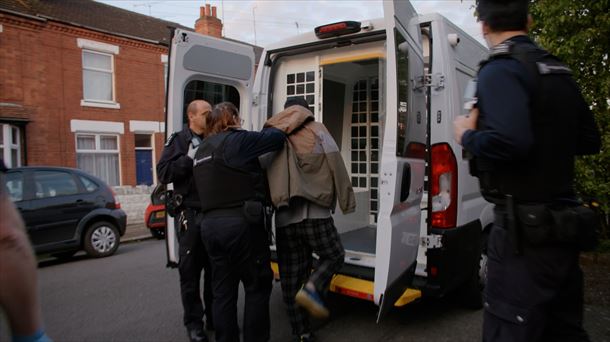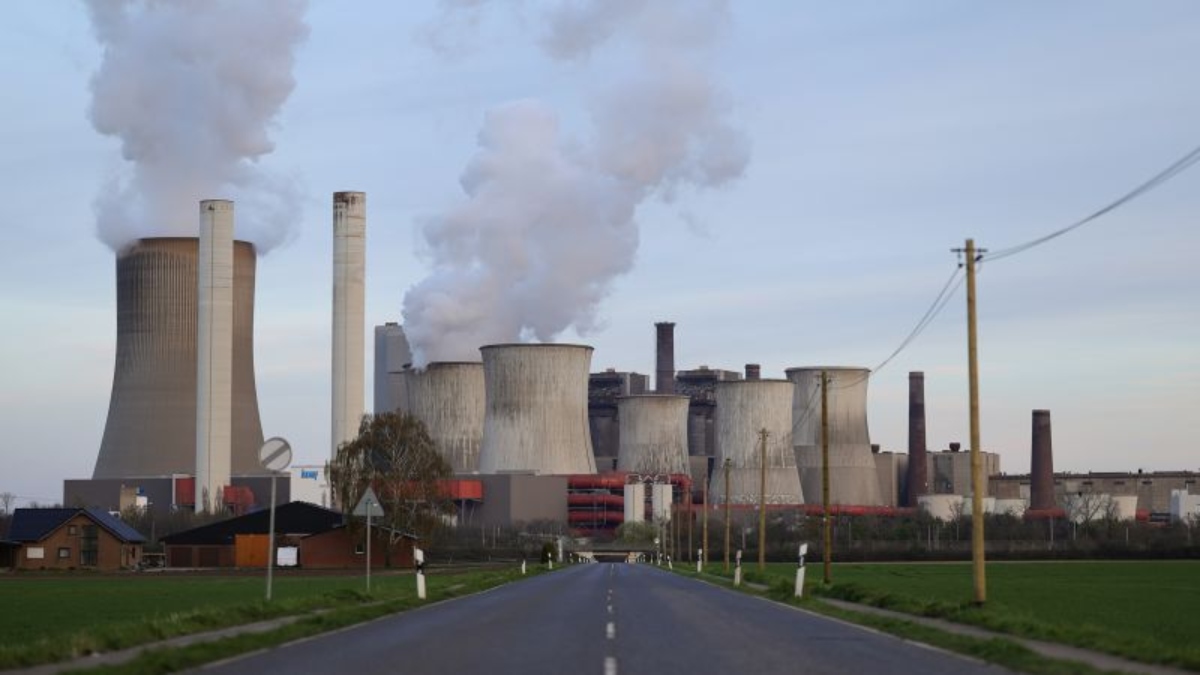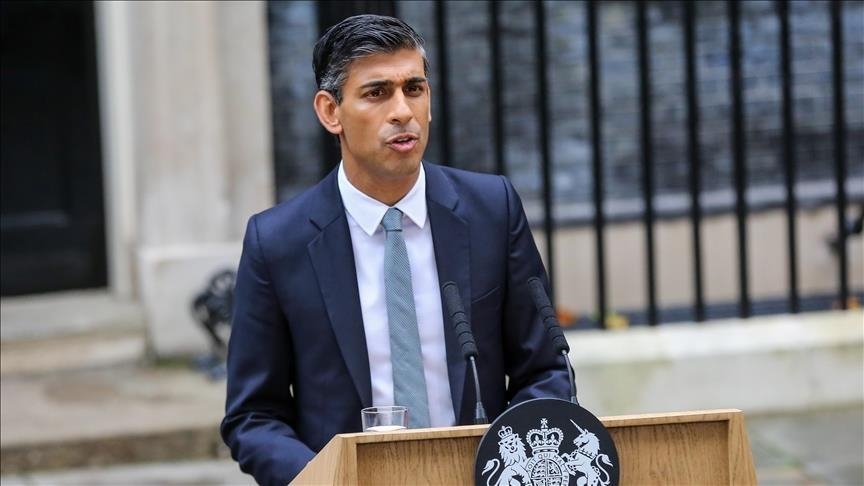This Wednesday the 30th, Belgian government announced that it would suspend asylum applications submitted by single men to give priority to families, women and children. This controversial measure adopted by Brussels is a response to the limitations they are experiencing due to the massive arrival of refugees asylum seekers to its territory.
LOOK: Ukrainian troops break through Russian defenses on the southern front: what is the progress of the counteroffensive?
The decision sparked strong criticism from humanitarian organizations, who described it as an attack on the rights of human beings trying to escape the latent dangers in their countries.
Asylum Minister Nicole de Moor highlighted that her country had received almost 37,000 asylum requests, about 3,500 above the country’s total shelter capacity.
On the other hand, around 62,000 refugees have arrived in Belgium since the Russian invasion of Ukraine began.
Since Belgium’s reception system collapsed, the country’s justice system has ruled in favor of more than 5,000 migrants suing the State for not providing them with the minimum conditions expected of the right to protection.
Given this, De Moor indicated that the action would seek “completely prevent children from being on the street this winter”, while men should be able to take care of themselves.
Belgium is not the only country that has had to take controversial measures to deal with the uncontrolled flow of migrants and asylum seekers.
great Britain
In April 2022, the British and Rwandan governments signed an agreement to send asylum seekers to the African country who the European country was unable to accommodate. The move immediately sparked a wave of criticism and complaints against the British government as it considered the dangers it would face in Rwanda, an authoritarian state accused of torturing and killing government critics.
In June 2023, the UK Court of Appeal ultimately thwarted the UK government’s efforts by declaring it illegal, but Rishi Sunak’s government appears determined to move the plan forward, even if it means appealing the decision to the Supreme Court. For now, migrants will be sent to Ascension Island in the Atlantic while their applications are processed.
In parallel, Sunak’s government began sending asylum seekers to the Bibby Stockholm, a large barge docked in Portland Harbor. This decision is a response to London’s efforts to reduce costs associated with caring for the 51,000 refugees currently being held by the state in hotels.
It is estimated that each year the British government allocates around 4.6 billion euros to treat asylum seekers.
But August brought with him not only Bibby Stockholm, but also a modification that tripled the fines for those who employed or hosted immigrants who came irregularly to the country. With the new law, those who employ illegal migrants will have to pay a fine of 50,000 euros; while those who rent houses to this group must pay 25 thousand euros for each migrant.
The controversy over the handling of illegal migration in the UK does not end there. Also in early August, the controversial Home Secretary, Suella Braverman, told the BBC they were evaluating fitting electronic wristbands to asylum seekers crossing into the UK via the English Channel.
Spanish
In contrast to the case in the UK, where justice blocked the option of sending asylum seekers to Africa, in Spain since February this year, migrant deportation flights to Senegal have resumed. The last flight was in 2018.
This move has raised fears especially among Senegalese applicants, who prefer to flee and remain underground before returning to the countries they fled from.
The last flight occurred on Wednesday 30, when 168 migrants rescued by a Spanish patrol off the coast of Mauritania, on a boat bound for the Canary Islands, were sent to Senegal.
On the other hand, humanitarian organizations criticized Spain for continuing to deny access to asylum seekers arriving in Ceuta and Melilla, Spanish enclaves in North Africa.
IOM, UNHCR, Human Rights Watch, Amnesty International and local NGO Ruedas Solidarias have reported that since the pandemic, Spain has blocked applications and has not reopened them. Additionally, they reported that since then they have increased the number of “hot returns” in the enclave, as border guards prevent migrants from submitting their applications.
Italy
Even though the current Prime Minister Giorgia Meloni had a tough anti-immigration speech, there are members of Italy’s ruling coalition who still think the speech is not enough. One of them is Deputy Prime Minister Matteo Salvini, who last week declared the need for a “security decree” to restrain the arrival of migrants.
Although he did not elaborate further on what the government was preparing in this regard, Salvini is remembered for his role as Minister of the Interior between 2018 and 2019, during the reign of Giuseppe Conte who put forward a policy of closing ports to prevent rescues. ships operating in the Mediterranean to bring refugees to the Italian coast.
This situation sparked a series of legal disputes between the government and humanitarian organizations, most of which ended in Rome’s favour.
Also during his tenure as minister, Salvini proposed carrying out a census of gypsies to find out their true size and expel those who were not born in Italy. The proposal was ultimately unsuccessful due to laws against ethnic seeking in the country.
Now, Salvini and Meloni are facing record numbers of more than 100,000 migrants in Italy so far this year, according to the Interior Ministry.
German
In June, Germany announced that it would tighten its anti-immigration policies amid an increasing number of people crossing its border with Poland on an irregular basis.
With around 4,000 irregular crossings along this road alone during the first quarter of this year, a different phenomenon is visible in German domestic politics. One is the rise in opinion polls conducted by the far-right Alternative for Germany (AfD) party, which is a staunch opponent of migration.
Another phenomenon is the reaction of local politicians who seek to give special powers to the police to carry out “hot returns” or carry out permanent border surveillance.
The interior minister, Nancy Faeser, has so far refused to implement the controls, but the pressure generated by the migration wave, and Poland’s tight border controls, may force her to give in.
Hungary
Since coming to power in 2010, Hungarian Prime Minister Viktor Orbán has been involved in numerous confrontations with the European Union, especially over the issue of immigration.
The right-wing politician implemented a closed law against foreigners, something that Pope Francis himself regretted during a mass celebrated in Hungary in April this year.
Orbán described the wave of migrants from Africa and the Middle East to Europe as an “invasion”. In 2015, the country enacted a controversial Emergency Law that allows the country to deport undocumented immigrants without prior procedures, a practice that continues to this day despite the fact that European courts have declared it illegal.
Also, that year, construction of a 175-kilometre-long fence on the border between Hungary and Serbia was completed, border patrols were strengthened and special powers were granted to use force to prevent illegal crossings and prison terms were established for certain cases.
Controversial EU treaty
In July this year, the European Union signed a memorandum of understanding with Tunisia covering a series of areas in which the bloc will seek to cooperate with Kais Saied’s government. As expected, due to its status as one of the two gateways to Europe for migrant waves, the agreement includes a special section for migration collaboration.
However, this memo drew criticism. First, because Saied’s government has been criticized by the international community – including the European Parliament – for practices that suppress freedom of expression, the independence of the judiciary and society. Additionally, the president compiled a series of racist statements against sub-Saharan immigrants.
On the other hand, NGOs specializing in dealing with this issue criticized that with this agreement, the European Union would try to externalize migration control and hand it over to African countries with questionable human rights records.
The latest list also includes Libya, the second gateway to the Old Continent, whose controversial border guards who have been willing to fire on humanitarian rescue ships operating in the Mediterranean receive funding from Brussels and various European Union governments.

“Web specialist. Incurable twitteraholic. Explorer. Organizer. Internet nerd. Avid student.”

:quality(75)/cloudfront-us-east-1.images.arcpublishing.com/elcomercio/4H4HWMOBGVCBJJFYR3M3XWAXOU.jpg)





